On the state and status of governance and people in Kashmir prior and after the Dogra rule are a thick volume of letters in the archives, written by a family of writers connected with the Lahore Durbar and the east India Company, MJ Aslam writes
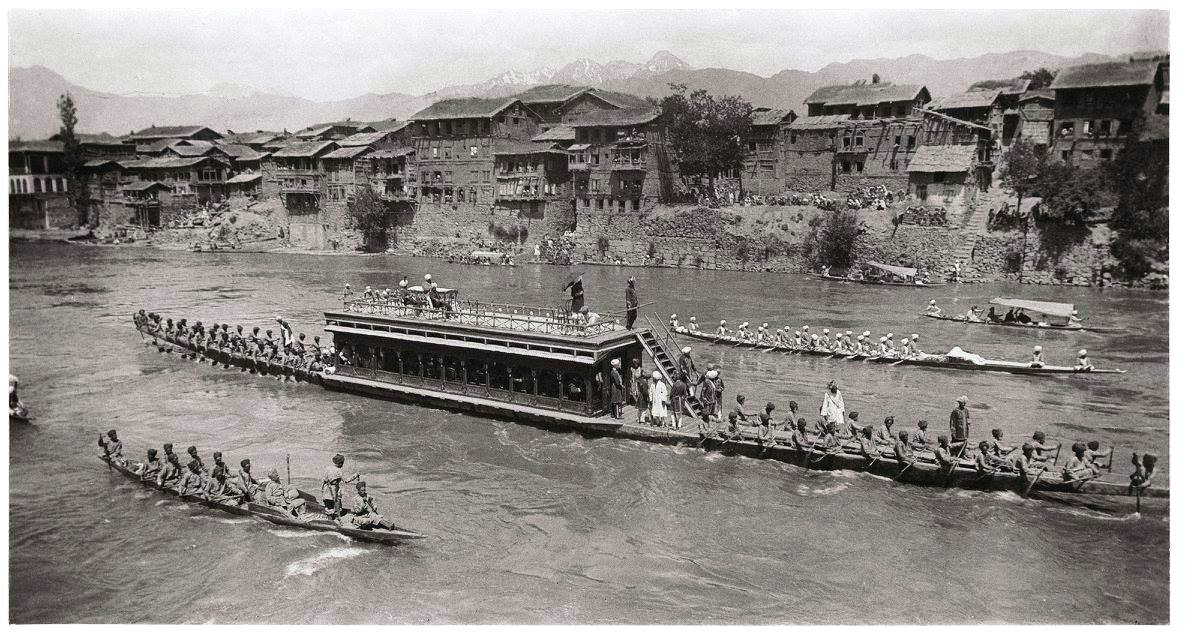
Mirza family was one of Kashmir’s famous families. Mirza Ahad of this family was one of the eminent personages in the court of Maharaja Ranjit Singh at Lahore Darbar. Sikhs ruled Kashmir from 1819 to 1846.
A Royal Guide
An elegant writer, orator, historian, he was and royal guide from Sikh court to the Europeans who travelled the territories of the Sikh Empire of nineteenth-century India including Punjab and Kashmir. Mirza Ahad was Secretary of General Jean-François Allard (1765-1839), a Frenchman, in Sikh court. It was Mirza Ahad who accompanied some of the eminent European travellers. These included Victor Vencelas Jacquemont, French Botanist who was in Kashmir in early 1931, Baron Charles Von Hugel, eminent Australian naturalist, when visited Kashmir in 1835; and Thomas Godfrey Vigne, English traveller and explorer, who arrived in Kashmir in 1835. All these gentlemen were permitted by the Sikh Ruler to visit Kashmir as royal guests.
All these eminent travellers have mentioned the intelligence, hospitality and service of Mirza Ahad in their travelogues. The travelogues, letters and notes of these Europeans are a part of the rich contribution to Kashmir’s geography, traditions, folklores, practices, topography, literature and political history. Mirza holds elaborate mention in the documents, especially that of Baron Charles von Hugel.
One day when he accompanied Hugel to Awantipora, there was a quarrel going on between two parties as one person had stolen the property of the other. As they saw Sikh soldiers reaching the spot, there was abrupt silence. Now, the accuser did not have any complaint against his thief. The angry arguments between the two parties ceased all of a sudden. After leaving the spot, when Hugel asked Mirza why the accuser did not complain to the Sikh soldiers, he told him: “A Kashmirian would put up with any wrong, rather than seek redress from his Sikh masters, as he is invariably obliged to pay the judge a high price for his decision, without the slightest prospect of recovering his lost property”.
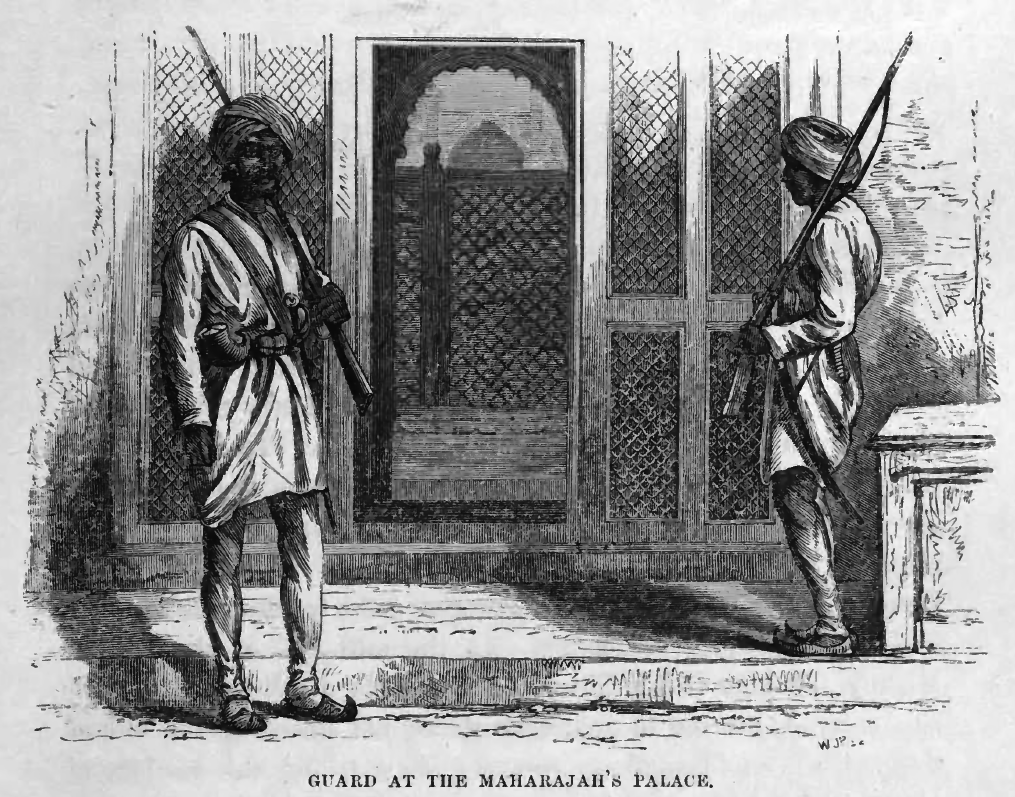
It was in recognition of his services to the Sikh Darbar that a pension and jagir of a village were conferred upon Mirza by the Ranjit Singh. Mirza also acted as a British correspondent and reporter of Kashmir for the British Government of India. He wielded a good influence in the British Indian government and after his demise, his son, Mirza Saifuddin was appointed correspondent and news-hawk of Kashmir, a service that continued during early Dogra rule.
Then, Mirza Saifuddin acted like a bridge between Gulab Singh and the British government on early Kashmir affairs of Dogra rule, which is confirmed in the writings of First British Officer on Special Duty in Kashmir, John Buller, [1859]. His letters from Srinagar to British India officers are a twelve-volume manuscript that is the key historic record of the early Dogra era. It is preserved at the University of Kashmir.
The Askardu Development
There was an important historical development, which has a connection with Saifuddin also. General Zorawar Singh was Gulab Singh’s commander till his death before 1846. Gulab Singh was in the service of Maharaja Ranjit Singh of Lahore from the start who had made him Raja of Jammu principality in 1818. Dogra Raja had his eyes on present-day Northern areas of Kashmir.
In the 1830s, Raja Ahmad Shah was the ruler of Askardu, part of the Northern Areas. He had two wives. One wife and her son, Shah Murad, who was nominated crown prince by the Raja, died in the lifetime of Raja Ahmad Shah. His eldest son, Mohammad Shah, was then a natural choice as heir apparent. But, the second wife, Dawlat Khatun, of Ahmad Shah, intrigued, taking some influential nobles on her side, and persuaded Ahmad Shah to designate her own son, Mohammad Ali Khan, as Wali Ahad (crown prince). This enraged Mohammad Shah beyond the limit of no return.

a painting preserved by the British Library
The decision to ignore him for the Askardu throne proved disastrous for the Askardu rulers. Mohammad Shah who was put in confinement by his father managed his escape from Askardu with the assistance of some nobles. He went straightway to Sikh Subedar of Kashmir who took him to Maharaja Ranjit Singh of Lahore for helping him to ascend the throne of Askardu. Maharaja Ranjit Singh had already ordered and entrusted Gulab Singh Dogra with the task of conquering Laddakh. Gulab Singh through his commander, Zorawar Singh, proceeded to conquer Ladakh. In 1839 Zorawar Singh conquered the Askardu fort whose chief defender Raja Sher Ali Khan had already sided with Mohammad Shah. Raja Ahmad Shah was defeated by General Zorawar Singh but only with the active help of his own rebellious son, Mohammad Shah, and Raja Ahmad Shah was deposed and imprisoned by Gulab Singh.
Mohammad Shah was installed on the throne of Askardu, obviously, as a puppet ruler. Then, it was Mirza Saifuddin who represented deposed and captive Raja Ahmad Shah and his other sons before Gulab Singh.
Mohammad Shah, who had acted as informant-agent in the battle of Askardu fort, for the Jammu-Dogras and Sikhs against his father, Ahmad Shah, was put on Gadi of Askardu by General Zorawar Singh of Raja Gulab Singh of Maharaja Ranjit Singh of Lahore.
A Historian
Mirza Saifuddin wrote a history of Kashmir in 1848-1864 in Persian entitled Khulasat-ul-Tawareekh. Later, at his request his brother, Mirza QamaruUddin was appointed by the British government as correspondent of Kashmir for them. After Mirza Saifuddin’s death, his other brother, Mirza Ghulam MohiuUddin was appointed British correspondent of Kashmir in the Gulab Singh’s Court.
In 1882 when State Council was set up, through the British Pressure only, it had three Muslim members on it: Akbar Beg, Khwaja Sana Ullah Shawl and Mirza Ghulam Mohiuddin.
The Poet Officer
However, it was Mirza Saududdin, pen-name Saud, who got prominence among all the members of the Mirza family during the late nineteenth century. He was younger son of Mirza Ghulam Mohiuddin. Besides, Kashmiri mother tongue, he was proficient in Persian, Arabic and Urdu languages also. He was a famous poet in Persian and Urdu. It was a time when English was not much popular and encouraged in Kashmirian society and still Mirza Saududdin had inbuilt inclinations towards reading English and Urdu newspapers.
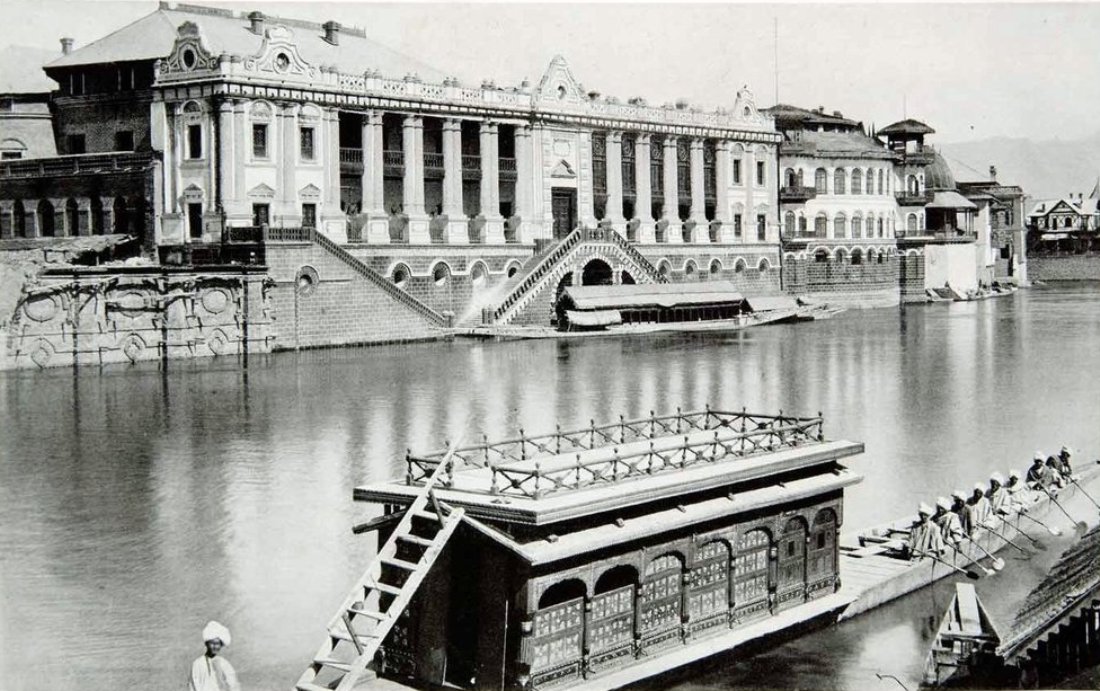
It may be mentioned here that hundreds of “private” newspapers in Urdu were published in Princely States of British India till the beginning of the twentieth century. Jammu and Kashmir was an exception to it where no “private” newspaper was allowed by the Dogra despots till 1924. But, Mirza Saududdin always obtained copies of newspapers from Punjab and other places to keep himself abreast with the news and political and other developments within and outside India.
Saududdin was a Kashmiri patriot and, in a broader sense, a true “Muslim nationalist” whose heart always bled for, and mind pondered on the general illiteracy and ignorance of his own people about their miserable socio-economic and political condition at home. Being a poet of eminence, he chose the medium of Persian and sometimes Urdu metrical genre for expressing his feelings, observations and thoughts about his Kashmiri Muslim community’s sad plight. He also published articles in newspapers of Punjab. He had great sympathy for the Kashmiri Muslim community who were reeling under the age-old impoverishment, illiteracy, ignorance and general backwardness under the reigns of hard masters. He wrote two famous Persian poems titled Taseer-i-Kashmir” wherein he recalled to the readers’ minds the glorious days of Islam, Muslims and the decline of their glory and Kashmiri Muslims’ pathetic plight.
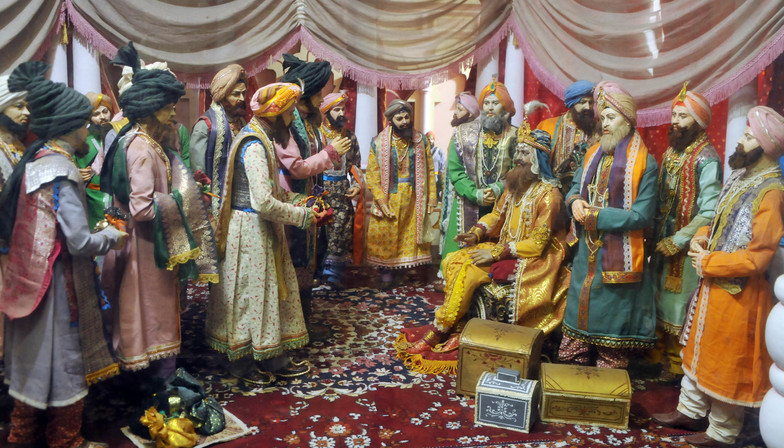
Mirza was critical of undue and excessive praise thrown by the ignorant people on the poets, which he believed was the cause of the decadence of meritorious and sincere poets in Kashmir who could be identified with nationalistic pathos and feelings, dukh-dard, in their hearts for the common people and their sufferings.
First Muslim Tehsilar
Mirza Saududdin was probably the first Muslim Tehsildar of Kashmir in Dogra Administration of Ranbir Singh. He was appointed Tehsildar Budgam. But due to his honesty, hard work and intelligence, the Maharaja and the Resident were highly pleased to appoint him Revenue Settlement Tehsildar of Srinagar from 1938-1944 Bikrami. Then, he was promoted Deputy Minister of Kamraz (North Kashmir) followed by Wazir i Wazarat (Governor) in the Maharaja’s court.
But, due to extensive reading and study, his health deteriorated for some time and he developed a dislike for the administrative glare and rank, which he had earned in the Maharaja’s administration due to his hard work and honesty. The weakness of the body due to affected eyesight and haemorrhoids compelled him to take early retirement from his job. He would find contentment of his heart and mind in newspapers, books reading and prayers. He would mention his ailments in his poetry also which was chiefly in Persian, the then official language.
Terrible Famine
The terrible famine of 1877-1879 wreaked havoc on the Kashmiri Muslim population killing thousands and forcing thousands to migrate to the plains of Punjab for survival. There were the hands of local Pandit officials like Wazir Pannu responsible for the maladministration during the hours of crisis that led to the catastrophe.
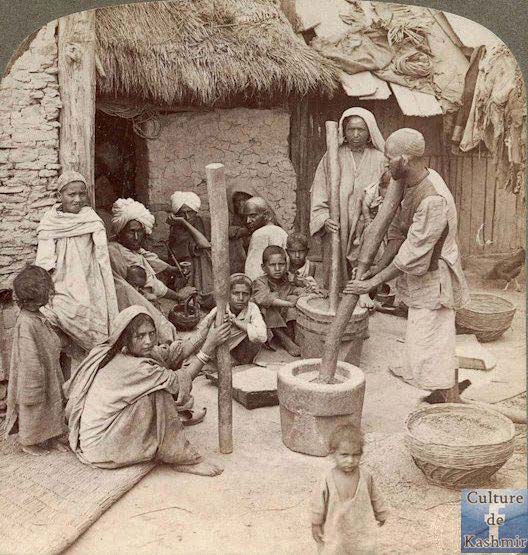
According to Sir Walter Roper Lawrence, during the famine, Wazir Pannu had declared: “there was no real distress and that he wished no Musalmam might be left alive from Srinagar to Rambhan”. Likewise, a Pandit private secretary of Dewan Anant Ram was asked by a British officer on special duty in Kashmir how would the Muslim villagers support themselves during the famine, the Pandit replied “they had gourds, sag and grass” to eat. It was against such callous attitude of Pandit officials that the Muslims would say: “Wazir tsalih, Kashmir bali”, when the Wazir goes, Kashmir will prosper”. Then, in post-famine-crisis, no other person than Mirza Saududdin was found by the Maharaja, Dogra Dewan Lachman Dass and the Resident, Sir Oliver John, as honest, dedicated and competent officer like him to handle the Shalli Store (Food Department -Dool Jinsi) of Srinagar and the people were already satisfied with Mirza’s integrity and fair dealings.
Like his grandfather Mirza Ahad, he was highly respected by all European travellers who visited Kashmir during that time. They have mentioned his high integrity in their travel notes.
In 1899, renowned Muslim scholar, Mawlana Shibli Nomani (d 1914) visited Kashmir. He wrote a poem about Kashmir in which he specifically mentioned the eminence of Mirza Saududdin. The poem was published in Indian newspapers. Mirza Saududdin reciprocated with his own poem containing his thankfulness, praise and Dua for the good health of Mawlana Shibli Nomani who too was not feeling well then.
Ultimately, after struggling through chronic haemorrhoids and other ailments, Mirza Saududdin breathed his last in 1905 at Srinagar when he was only 48 years old. His death was widely condoled by Kashmiris both Muslims and non-Muslims. After a week of his death, the Maharaja Pratap Singh’s Personal Secretary visited their Srinagar home for customary Dastarbandi of his sons, Mirza Ghulam Nabi and Mirza Mohammad Amin.















